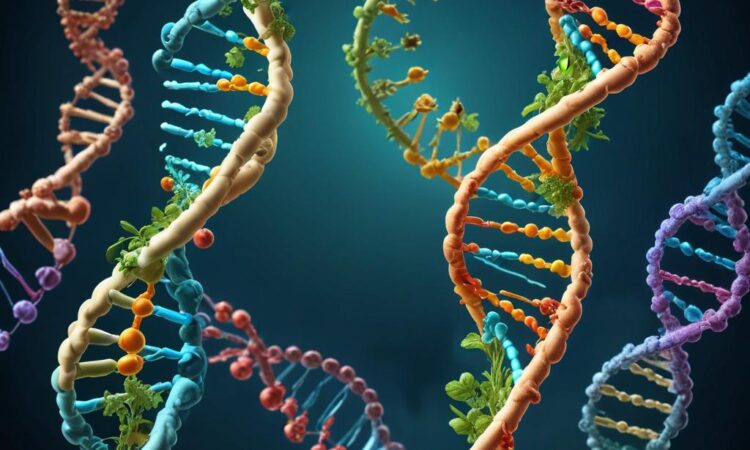Biotechnology: Developments in Genetic Engineering, Gene Editing, and Applications
Introduction
Biotechnology, the application of biological principles and techniques to create products and processes, has revolutionized numerous fields, particularly healthcare and agriculture. At the heart of this revolution lie advancements in genetic engineering and gene editing, which empower scientists to manipulate and modify the genetic makeup of organisms with unprecedented precision. This essay will explore the profound impact of these technologies on various aspects of human life, examining both their potential benefits and associated ethical considerations.
Genetic Engineering: Shaping the Blueprint of Life
Genetic engineering involves the direct manipulation of an organism’s genes to alter its characteristics. This process often entails inserting, deleting, or modifying specific DNA sequences within an organism’s genome. The ability to engineer genes has opened up a wide range of possibilities, with applications spanning from agriculture to medicine.
Agricultural Applications
In agriculture, genetic engineering has been instrumental in developing crops with enhanced traits, including increased yield, resistance to pests and diseases, and improved nutritional content. For instance, genetically modified (GM) crops engineered to resist specific herbicides allow farmers to control weeds more effectively, reducing the need for chemical applications and promoting sustainable agriculture. Furthermore, GM crops with increased nutritional value, such as golden rice enriched with vitamin A, have the potential to address dietary deficiencies in developing countries.
Medical Applications
In medicine, genetic engineering has transformed the treatment of diseases. One remarkable application is the production of therapeutic proteins, such as insulin for diabetes treatment, through genetically modified organisms. The development of gene therapy, which aims to correct genetic defects by delivering therapeutic genes into cells, holds immense promise for treating a wide range of diseases, including cystic fibrosis and cancer.
Gene Editing: Precision Tools for Genetic Modification
Gene editing technologies, such as CRISPR-Cas9, have emerged as highly precise tools for altering DNA sequences. CRISPR-Cas9 functions as a molecular \”scissors,\” enabling scientists to target specific DNA sequences and introduce modifications with remarkable accuracy. This precision has revolutionized genetic research and has significant implications for medicine, agriculture, and other fields.
Medical Applications of Gene Editing
Gene editing holds immense potential for treating genetic diseases. By correcting faulty genes, gene editing could potentially cure diseases like sickle cell anemia and Huntington’s disease. Furthermore, gene editing could be used to enhance the effectiveness of immunotherapy for cancer treatment by modifying immune cells to target cancer cells more effectively.
Agricultural Applications of Gene Editing
In agriculture, gene editing can be used to improve crop yields, enhance nutritional content, and enhance pest and disease resistance. For example, gene editing could be used to modify crops to produce higher levels of essential nutrients or to develop crops that are resistant to specific pests or diseases. This could contribute to food security and reduce reliance on pesticides and herbicides.
Ethical Considerations and Challenges
While biotechnology offers tremendous potential, it also raises significant ethical considerations and challenges. One key concern is the potential for unintended consequences, such as the creation of harmful organisms or the disruption of ecosystems. Additionally, the ethical implications of altering human genes, particularly in the context of germline editing (modifications that can be passed down to future generations), have been widely debated. The potential for genetic discrimination, where individuals are treated differently based on their genetic makeup, is another ethical concern.
Regulation and Responsible Use
To ensure the responsible use of biotechnology, rigorous regulations and oversight are essential. Governments and regulatory bodies worldwide are actively engaged in developing guidelines and policies for the safe and ethical use of genetic engineering and gene editing. These regulations aim to balance the potential benefits of these technologies with the need to mitigate risks and address ethical concerns.
Future Directions
Biotechnology is a rapidly evolving field with immense potential for future innovation. Advancements in gene editing, synthetic biology, and other emerging technologies are poised to revolutionize healthcare, agriculture, and other industries. As these technologies continue to develop, it is crucial to engage in ongoing dialogue and collaboration among scientists, policymakers, and the public to ensure responsible use and address ethical challenges.
Conclusion
Biotechnology, particularly in the realm of genetic engineering and gene editing, has ushered in a new era of possibilities. From developing disease-resistant crops to treating genetic disorders, these technologies have the potential to address some of humanity’s greatest challenges. However, it is essential to navigate these advancements with caution and responsibility, considering the ethical implications and ensuring that these technologies are used for the benefit of all.

